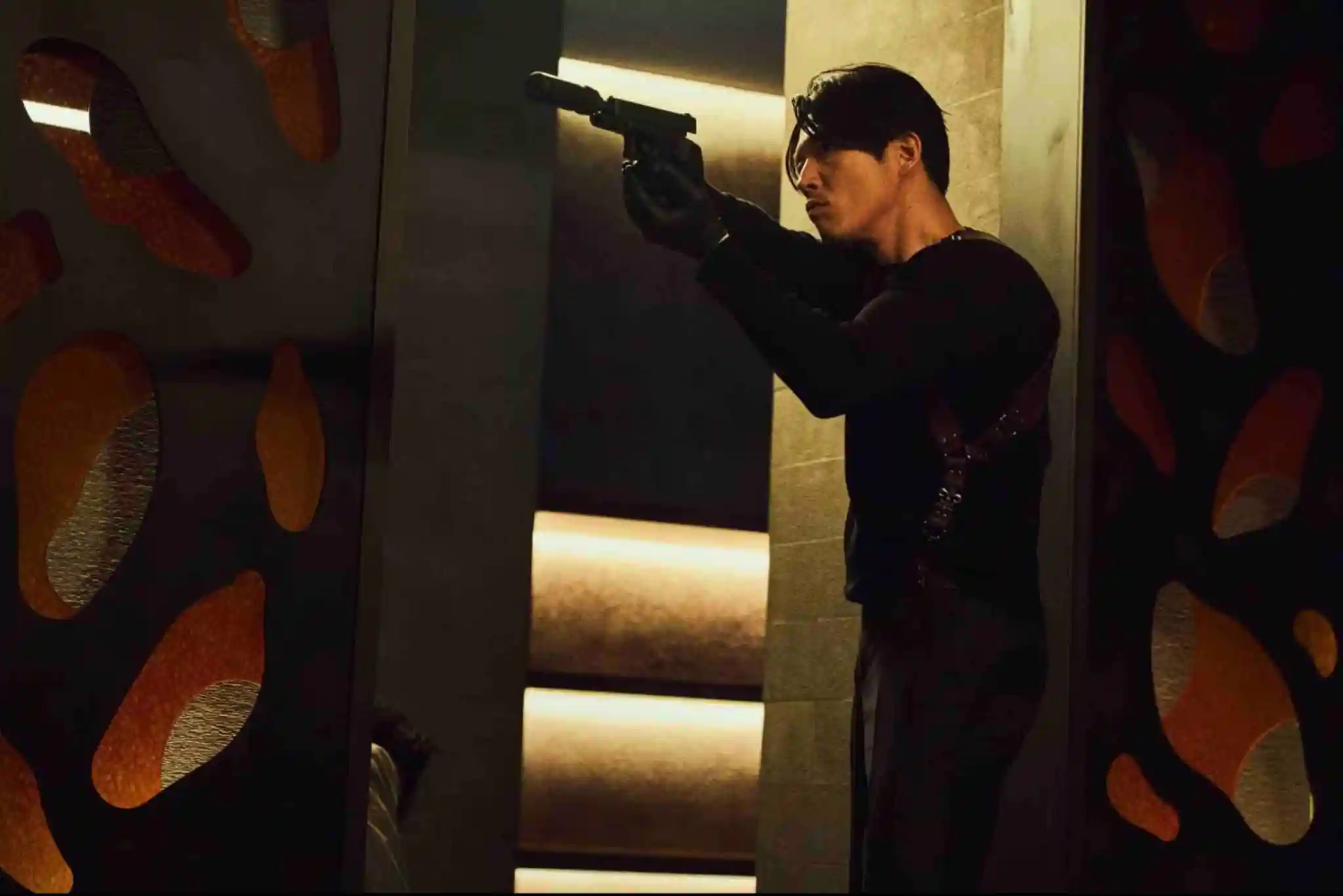The Killer (Choi Jaehoon, 2022)

Last night I picked up and started reading the first Jack Reacher book. I saw the first Tom Cruise movie years ago, and liked it well enough, and really enjoyed the Amazon series that premiered on Amazon earlier this year. My edition of the book includes an introduction by author Lee Child, where he describes how he came to be a writer in mid-life and how he designed his project deliberately to run counter to prevailing trends in suspense literature. Specifically, he wanted to make Reacher not a flawed protagonist, haunted by addiction or trauma or moral grayness, not a guy who loses over and over again until he somehow, barely, wins in the end, but rather the biggest, strongest, smartest, most capable person in every situation. He figured that audiences would grow tired of relatable heroes, that we’d much more enjoy seeing the forces of evil get what’s coming to them by a larger than life (literally), hero. I thought about that a lot while watching The Killer, the latest action thriller from Korean star Jang Hyuk.
Jang plays a retired professional assassin (the eponymous killer) who is tasked by his lovely wife with babysitting her friend’s teenage daughter while the two of them (wife and friend) go hang out at a beachside resort for three weeks. Because he’s a pushover, he accepts the job, only for the unfortunate teen to almost immediately fall into the hands of murderous sex traffickers. So he does what he does best: employ his fists, feet, knives, guns, automobiles, sticks, or whatever in tracking down the girl and killing all the bad guys in the way. Many many action scenes follow, a highly competent example of the dominant contemporary mode of action filmmaking outside the Hollywood blockbuster machine: flowing digital cameras in artificial sequence shots; bright colors (golds, neon pinks and greens) contrasting with deep blacks (the hero wears all-black, John Wick-style); reasonably creative choreography emphasizing physical impacts and speed but lacking the inspiration of the Hong Kong filmmakers at their best (no opera acrobatics or ingenious appropriations of found objects and natural environments) performed by competent stunt-people (with Jang apparently doing much of his own stunt-work). Above all the fights emphasize a forward momentum, paralleling Jang’s dogged pursuit of his quest. And, most interestingly, he never appears to get hurt.
For Jang’s killer is very much in the Reacher mold: he is quite obviously better (physically, intellectually, morally) than any of his opponents. This isn’t a crumbling kind of hero, like Mary Elizabeth Winstead in last year’s Kate, taking an unreal amount of abuse but staying the course until her enemy is defeated. Instead, we never believe Jang is in any real peril—our enjoyment of the action scenes comes not from suspense, but from the thrill of watching evil get punished. The only suspense there is in the film is the mystery of why the girl was kidnapped, but we can rest assured Jang will kill his way to a satisfactory answer. It’s not an enlightened approach to moral dilemmas to be sure, and the pacifist in me knows very well that it is not a good thing for individuals to run around murdering people, even if they are for an undoubted fact terrible human beings. But we’ve been living with gray areas in our action fiction for so long: anti-heroes and heroes who can’t win because the system is corrupt, and heroes who cling to a code of honor no longer relevant in our corrupted modern age, and heroes who sacrifice themselves for an infinitesimally small chance at a better tomorrow. Is it so bad to make believe ourselves into an excessively violent yet morally clear world for a little while? Yeah, probably. But it’s fun while it lasts.
